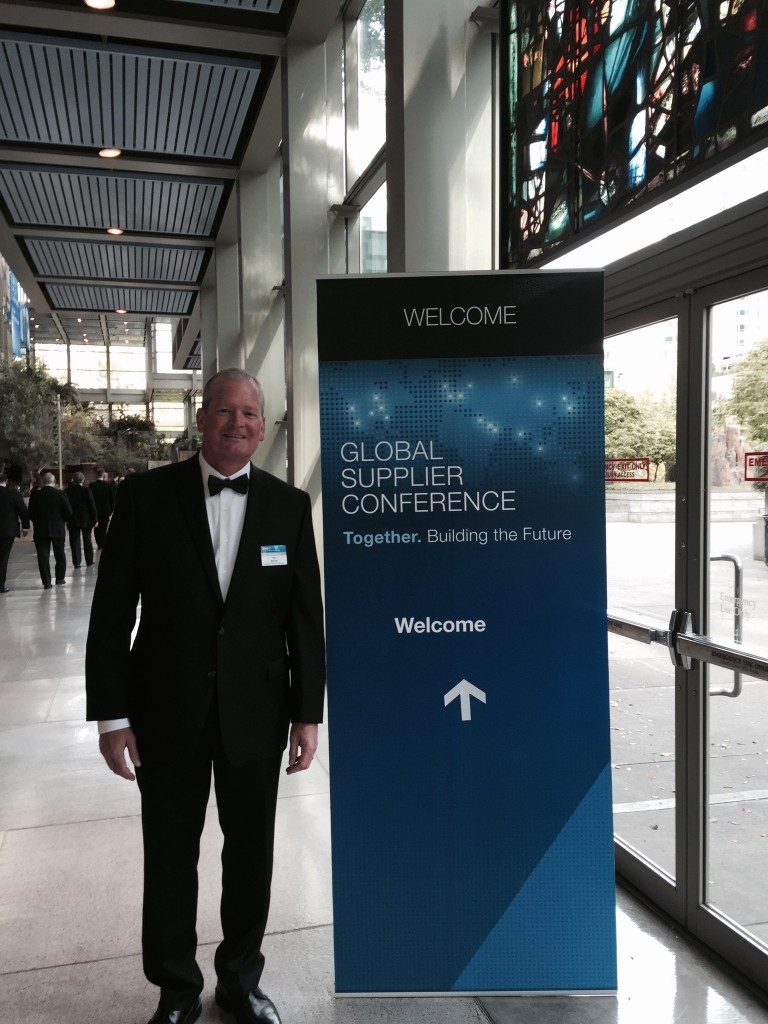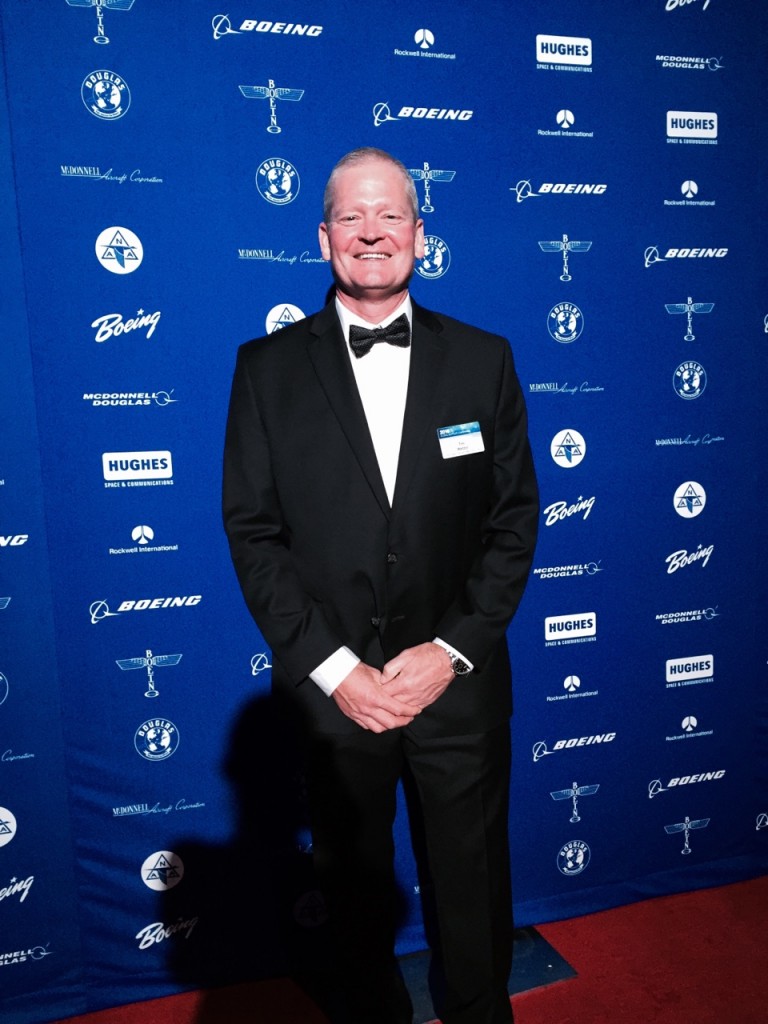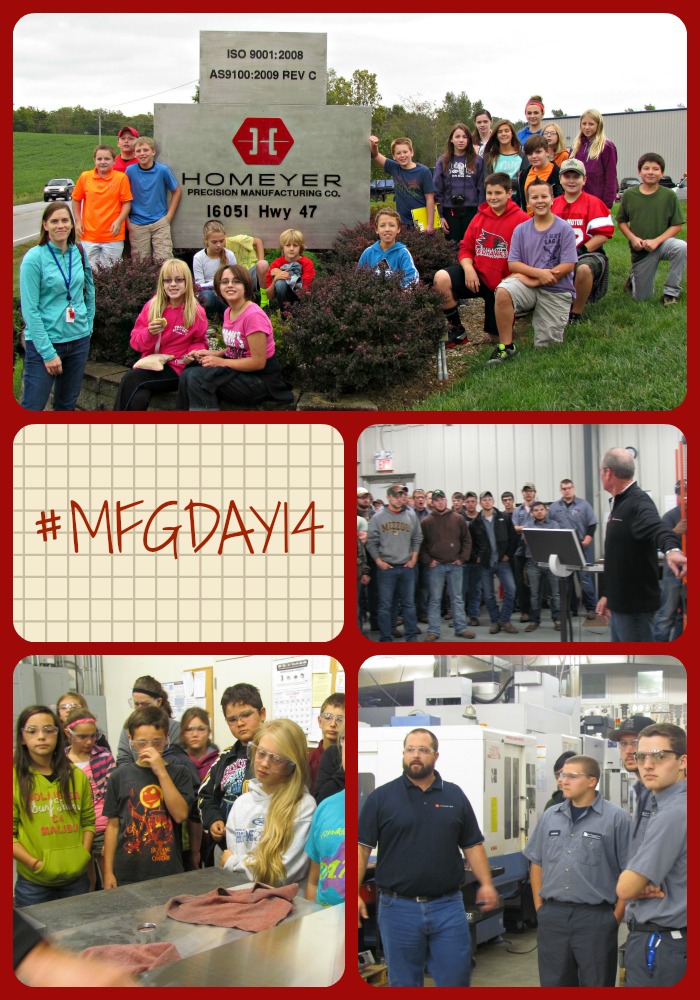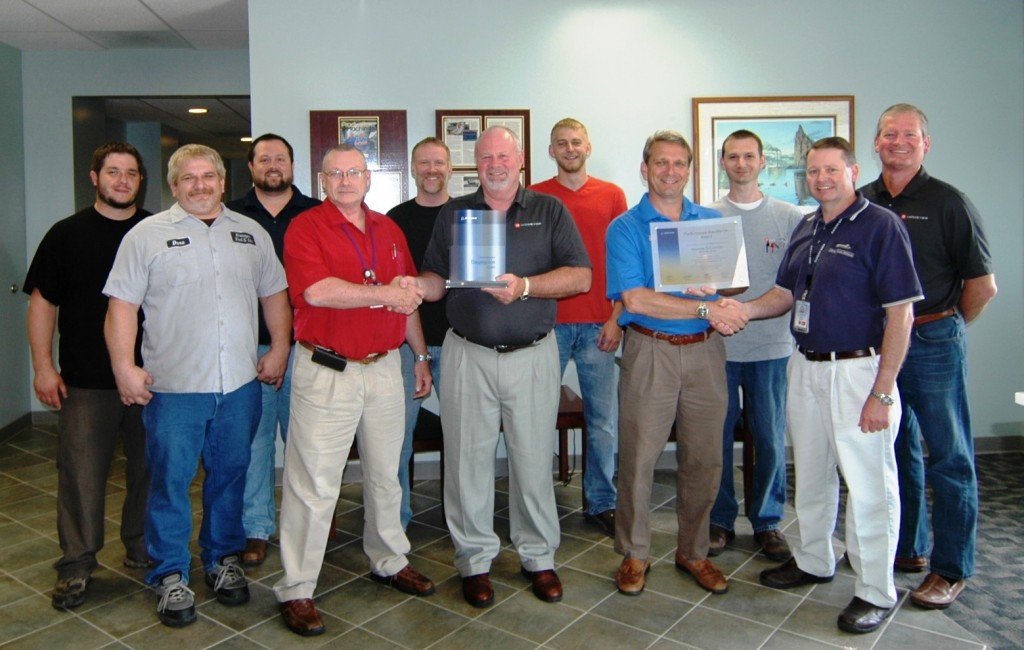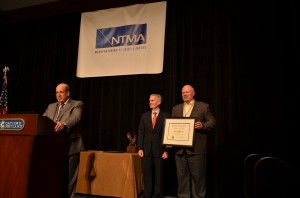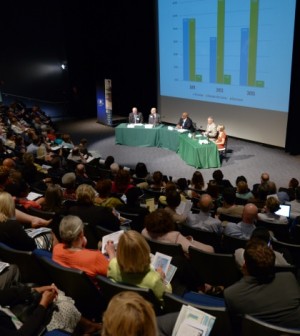
STLCC’s Latest Workforce Research Uncovers New Perceptions on Talent, Cautious Employment Growth
St. Louis Community College’s Workforce Solutions Group presented the fifth annual State of St. Louis Workforce Report, highlighting new employer perceptions on key talent development issues such as the value of online degrees, industry recognized certificates and experienced workers. The report also revealed a slight increase in the number of companies looking to expand employment levels and a corresponding decrease in companies expecting to reduce employment levels.
The findings were released today to more than 400 business and community leaders at the Missouri Botanical Garden as part of a St. Louis Business Journal seminar series. A panel of distinguished corporate executives representing key employing industries also provided a robust discussion of key findings. The seminar was televised live on HEC-TV.
“As we seek to understand trends in employment growth, we also must understand the types of skills, credentials and modalities of instruction that have value in the labor market,” said Roderick Nunn, D.M., vice chancellor for economic development and workforce solutions for St. Louis Community College who also moderated today’s panel discussion. “This year’s research confirms that the economy continues to grow at a steady rate with 38.6 percent of employers expecting to increase employment in the coming year, compared to 33.1 percent a year ago. We also have strong confirmation that industry-recognized certificates and online degrees have significant value among area employers.”
STLCC officials today were joined by executives from AEP River Operations, Edward Jones, Homeyer Precision Manufacturing and SSM Health Care to engage the audience in strategic conversations on the key findings of this annual workforce intelligence report for the region.
In summary, key findings from the fifth annual survey of more than 1,222 employees include:
•As the recession fades into the past and recovery takes hold, employer optimism continues to grow at a slow but steady pace. More employers plan to increase their employment levels and fewer plan to decrease their levels than in 2012. The majority of employers (57 percent) plan to maintain their current levels, reflecting a bias toward caution.
•Economic conditions continue to be cited most often as a barrier to expansion, but the number of employers reporting that as a barrier is down sharply from the previous report. For the first time since the inception of the survey, the shortage of workers with knowledge and skills has replaced government policies as the barrier to expansion most cited after economic conditions.
•While employers continue to recognize substantial shortcomings in their applicant pools, a slack labor market has allowed them to be more selective when hiring. This is reflected in increasing experience and education requirements and in the number of employers reporting that they are hiring only workers who are already trained. These strategies also are necessitated by the need to acquire workers who can adequately function in a growing knowledge economy. Employers both have increased the number of full-time workers they plan to hire and their use of contract employees and temporary agencies. This may reflect different strategies for securing high-skilled versus low-skilled and specialized workers.
•This year’s survey attempted to gauge the premium that employers place on experience and the relative value of industry credentials and online degrees. Given a choice, employers would favor an employee with extensive experience over a recent graduate. They view online degrees and industry credentials as acceptable for entry- and mid-level positions, but favor traditional degrees for advanced positions.
“The key takeaway from today is that there are still a lot of opportunities for partnerships,” said Deborah Walkenhorst, regional vice president for human resources at SSM Health Care-St. Louis. “We seek out those partnership opportunities for the older workforce as well as recent graduates.”
“In terms of hiring, the drought last year ruined crops and weakened the demand for corn. This year we are seeing a bumper crop and expect robust demand. We expect to increase our workforce by 10 to 12 percent,” said Keith Darling, president at AEP River Operations. “The vast majority of our jobs are for unskilled labor and we do on-the-job training. We still have an apprentice program for our skilled labor force because many of our jobs require U.S. Coast Guard certification – regulations demand it. In the river transportation industry, we have found chronic skills gaps in workers because of the licensure requirements, and they must have the requisite experience. Many of our unskilled jobs are filled by younger males because of the physical nature of the work, and we have found some very fine young people. We are really seeing a gap in soft skills such as leadership – because a person has to be in charge of a crew – and in teamwork and collaboration.”
In the manufacturing realm, one local company hires both trade school/community college graduates and experiences workers. There is significant on-the-job training as well as mentoring for skilled positions.
“We prefer to hire individuals with the skills required for the job because that part of our company is so small and we don’t have a good mentoring program yet,” said Herb Homeyer, president and owner of Homeyer Precision Manufacturing. “Individuals with online degrees have not applied for positions with us. What you don’t tend to get with an online program is hands-on or lab work. If you have an online program that couples with hands-on training there is nothing wrong with that. In this industry, hands-on experience is absolutely preferable.
Regarding soft skills, Brian Ashworth, principal in human resources at Edward Jones, said: “It’s not as much about training in critical thinking and problem solving as it is about developing those skills.”
Ashworth has good news for veterans seeking employment. “We have several programs focusing on the military. Close to 1,000 military and ex-military will be hired this year, and veterans possess many transferable skills that meet our needs,” he said.
In addition to Nunn, other presenters were Myrtle Dorsey, chancellor, St. Louis Community College, and Alan Spell, economic and workforce research manager, Missouri Economic Research and Information Center.
For the second straight year, STLCC conducted a survey of recent community college graduates. Nearly 190 STLCC program graduates responded to the survey. In-depth focus groups of interested respondents also were held with graduates to provide the report with more color and context around the students’ experience.
Visit STLCC.edu/STLworkforce to download the full report and/or the four-page summary.
Credit: http://workforcesolutions.stlcc.edu/2013/what-do-employers-value-most/
 Homeyer Precision Manufacturing is proud to receive the Silver Boeing Performance Excellence Award for 2015.
Homeyer Precision Manufacturing is proud to receive the Silver Boeing Performance Excellence Award for 2015.